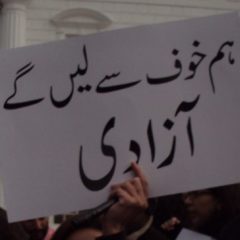As the present civilian government presents its fifth budget, will the general public experience any tangible benefits from one full term?
The present coalition government led by the Pakistan People’s Party will present the fifth and final budget of its parliamentary tenure. This is the first ever time a civilian government has been able to do so in Pakistan. The budget is expected to be presented in the National Assembly by the Finance Minister Dr. Abdul Hafeez Shaikh in a charged atmosphere. There are expectations of clamour from the opposition for the dismissal of the Federal Cabinet and removal of the Prime Minister, after the latter’s ‘conviction’ by the Supreme Court. Based on past precedents, the opposition is also expected to make token references to inflation and corruption, and will give cogent amendments of which some could be incorporated into the final and consolidated Finance Bill for the upcoming fiscal year.
In spite of the political opposition faced by the incumbent coalition government, Pakistan’s financial situation has barely improved in the last five years. The measures designed to arrest the economic decline have not yielded any substantial results. The incumbent government has continued to present pro-poor budgets, but has struggled to arrest the galloping inflationary trends and growing joblessness prevalent in the country. The energy crisis faced by Pakistan due to monetary mismanagement continues to thwart economic recovery and keeps on eroding the capacity of the existing economic institutions and units. The crisis of trust in Pakistan’s economy remains the most threatening element of the country’s financial woes. This is reflected in a tax base that continues to default on its dues to the state and in the trend of downward-spiraling values for the local and foreign investment in the Pakistani economy.
Compounding these problems is the state of socioeconomic insecurity, perpetuated owing to militancy. This remains particularly true in the case of the KP province and the western tribal areas. Militant activities by extremists in other parts of the country also impact public security to a great degree, and curtail the civil freedoms that the Constitution of Pakistan provides to all citizens.
Read the complete policy brief at the Jinnah Institute website by clicking here
